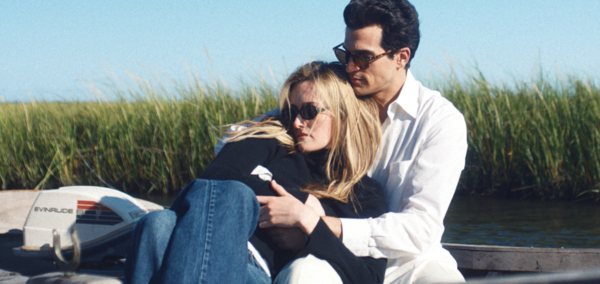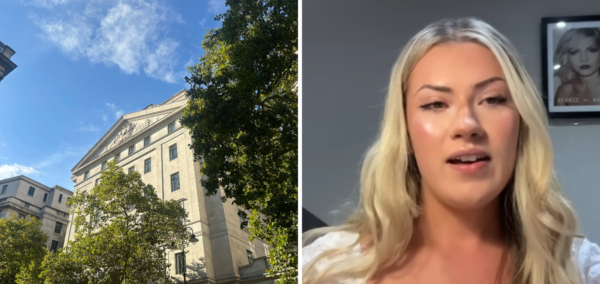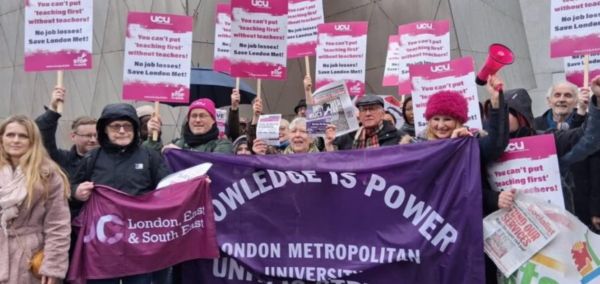
University of York becomes first UK university to divest in arms industry
The University will no longer invest in the arms industry, fossil fuel banking, and international law violators
The University of York has announced that it no longer holds any investments in companies that produce or sell weapons and defence-related products or services.
The divestment follows changes to the Uni of York’s 2019 responsible investment statement, which now states that the University will no longer invest in the arms industry, fossil fuel banking, and international law violators.
The University of York is, so far, the first UK university to announce such divestment. York’s Students’ Union President, Pierrick Rodger, told The York Tab that the progress made at York seeks to pave the way for other unis to follow suit: “We’ve started something at York”.

Image via @yusupresident
In 2019, the University of York issued a statement on “responsible investment”, which set out the Uni’s goals in line with their purpose to exist “for public good”. The statement said: “The University will not knowingly invest in companies whose activities include practices which directly pose a risk of serious harm to individuals, society, or the planet, or whose activities are inconsistent with the mission and values of the University.”
This statement has now been updated, showing a new commitment to ending direct and indirect investment from companies whose primary activity is in armaments and defence, building from previous commitments to end investment in fossil fuels.

Pierrick told The York Tab that the process to get the decision passed as “a very steep uphill battle” that started back in 2021 when he was Environment and Ethics Officer. His “Do Better” campaign saw hundreds of letters sent directly to the Vice-Chancellor, opening conversations with sustainability and finance staff.
Once elected SU President, he said he continued to lobby internally for change, making the case that the stance (not divesting) “damaged the University’s reputation and… recruitment”.
This year, the responsible investment statement was set to come back to the University Council for review. As a member of the council, Pierrick said that he “saw this as an opportunity to force through significant changes”

Before this review, the SU put together a report on the Uni’s finances which included a comprehensive analysis of investments and student polling. In short, the report outlined where the university invested, and which companies it received funds from, including arms companies and fossil fuel banking.
Pierrick told The York Tab that the report “demonstrated the [uni’s] failure to meet recruitment targets as a result of unethical policies”. The report then allowed him to draft three amendments to the responsible investment statement: removal of fossil fuel banking investments, removal of investments in international law violators, and removal of investments in weaponry.
On campus, student discontent at York’s ties with the arms industry has been clear. Throughout this academic year there have been multiple protests and campaigns urging the University to divest, including at a career’s fair where weapons companies were present.

Pierrick said that he then “pressured individual council members, the majority of which are externals who rarely ever venture onto campus except for council meetings, to vote in favour of the amendments, which they did.”
Vice-Chancellor Charlie Jeffery has commented publically on the decision: “I’m very proud York has evolved our investment strategy in this way, in line with our values as a University for public good.
“Our students in particular have raised their concerns about responsible investment and corporate links to armaments and defence, and they have rightly and passionately challenged us to rethink our approach.”
The University of York is the first UK university to commit to such divestment, but it will hopefully be joined by other universities in the near future. Pierrick told The York Tab how Students’ Unions across the country have been in touch for advice. He said: “I think we’ve started something in York.
“A lot of divestment campaigns fail because it’s very hard to know exactly how much money is invested where – universities are not usually forthcoming and it’s very easy to make mistakes! I’ll be advising Unions on how to write their own Divestment Reports now that we’ve nailed the methodology.
“Hopefully this means it is easier to hold universities to account for their investment decisions and democratises access to this information. I’m hopeful they’ll be able to secure their own successes!”
Related stories recommended by this writer:
• Students have protested over presence of weapons companies at Uni of York’s career fare
• Students protest on campus against University of York’s ‘investment in arms companies’
• ‘Fix the Foss’: Campaign launched by Uni of York students in the Environment Department


















